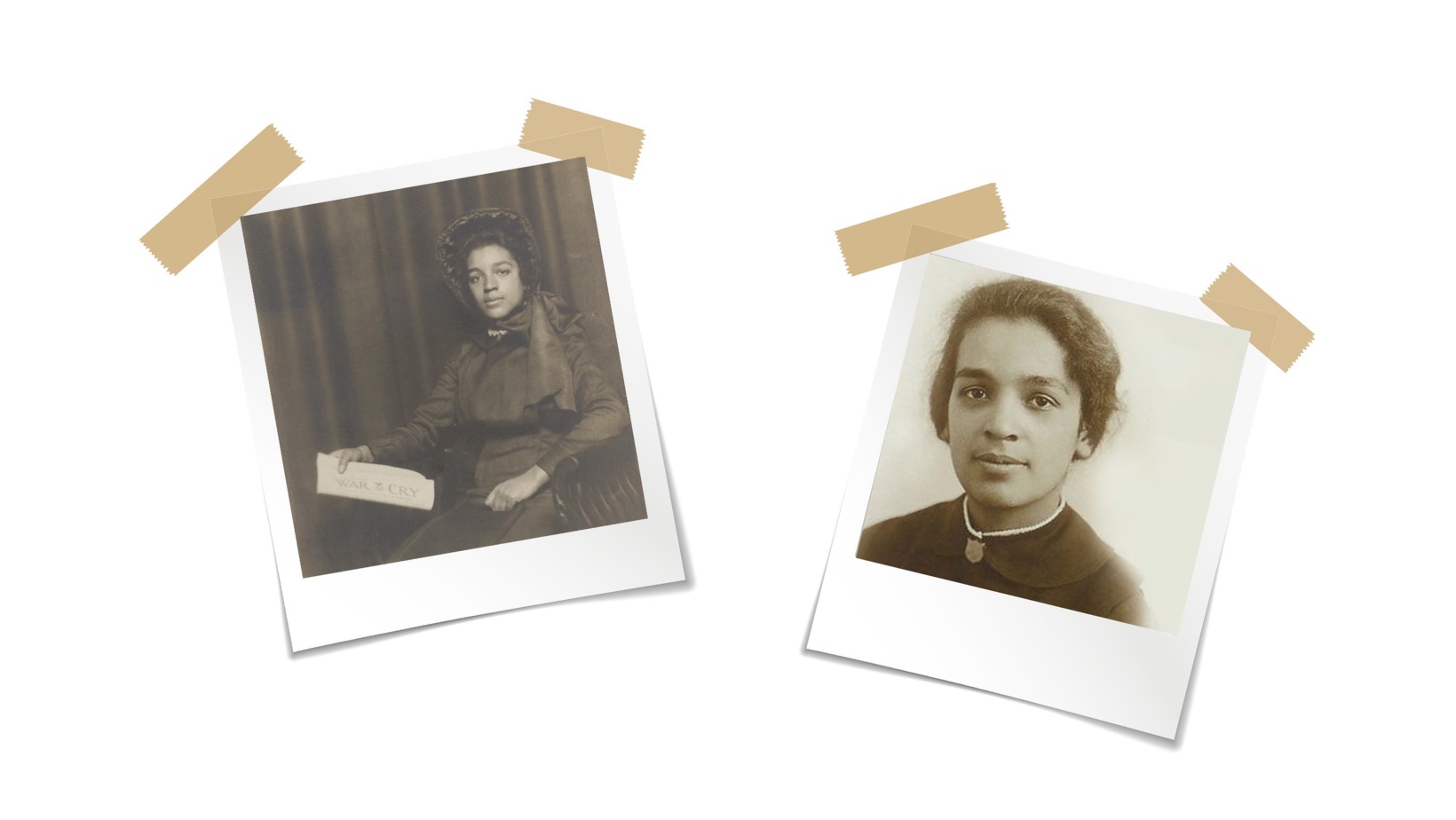A Soldier of Uncommon Valor
Ensign Mable Broome is remembered for her courage during the unsettling racial disparity in American history and her love of The Salvation Army's hands-on ministry.
Please enter your name, email and zip code below to sign up!
Please enter your name, email and zip code below to sign up!
Please enter your name, email and zip code below to sign up!
Please enter your name, email and zip code below to sign up!
Please enter your name, email and zip code below to sign up!
Please enter your name, email and zip code below to sign up!
Please enter your name, email and zip code below to sign up!
Please enter your name, email and zip code below to sign up!
Please enter your name, email and zip code below to sign up!
Please enter your name, email and zip code below to sign up!
Please enter your name, email and zip code below to sign up!
Please enter your name, email and zip code below to sign up!
Please enter your name, email and zip code below to sign up!
Please enter your name, email and zip code below to sign up!
Please enter your name, email and zip code below to sign up!
Please enter your name, email and zip code below to sign up!
Ensign Mable Broome is remembered for her courage during the unsettling racial disparity in American history and her love of The Salvation Army's hands-on ministry.
Ensign Mable Broome is remembered for her courage during the unsettling racial disparity in American history and her love of The Salvation Army's hands-on ministry.
Mabel Vivian Broome was commissioned as the first African-American Salvation Army officer in the United States in 1915 and was a “Gideon” of her day. Mable Broome not only led the charge to demolish the color line, but she also reinforced the Army’s commitment to give leadership roles to any Christian regardless of gender.
Drawn to the Army by its preachers’ enthusiasm and relentless social outreach, Mabel became a soldier or member of a Salvation Army church called Chicago #3 Corps (church). Then she answered the call to become an officer. After an intense six months of training, Mabel became the first African American officer in the Army’s Central Territory on July 20, 1915, just as World War 1 was heating up.

P perhaps the most challenging of Mabel’s assignments was the “Chicago #2 Slums.” The Army set up “slum corps” in the poorest sections of cities.
At the Slum Settlement Corps, Lieutenant Mabel became one of Chicago’s legendary “Slum Sisters,” a position that required extreme dedication and hard work. Slum Sisters ministered to the most impoverished communities and aided mothers and children, the sick and disabled, by performing housework, cooking meals, mending clothes, and bathing children. They prayed with and sang for the people they served. The Sisters ministered to patrons of brothels and saloons and conducted open-air services for all who passed by. They sold The War Cry and solicited donations of food and clothing. In the evenings, the beloved “sisters” held meetings at the corps.
The ‘sisters’ gained the community’s trust and were revered by civic leaders. Not surprisingly, they sometimes experienced hatred and distrust, especially from businesses that were negatively affected by their work. The duty must have been tough for Mabel, an African American in the United States that was highly segregated. She experienced admiration and derision while serving in neighborhoods polarized by racial differences.

A after serving three years as a Lieutenant, she left the work, likely from complications with her health. After some recovery, Lieutenant Broome committed herself to the Army again. She returned to work and accepted a reassignment to the Evangeline Booth Home and Maternity Hospital in Boston, Massachusetts, a home for unwed mothers, in 1920. There she received the rank of Ensign. Unfortunately, in 1930, Mabel passed away from a fatal infection.

Ensign Mable Broome is remembered for her courage during the unsettling racial disparity in American history and her love of The Salvation Army ministry. She is also recognized as the first female officer of color commissioned from officer training in Chicago. She would pave the way for many who would follow in her footsteps to serve the least, the lost and the forgotten, in the name of Jesus.
Credit: Adaptation from “A Gideon of the Chicago Slums” by Karen Young; Drawing of Mabel Broome by Peer Magazine